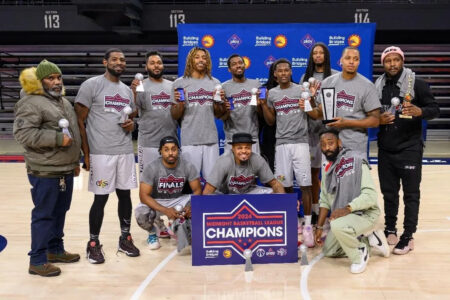The Alabama Crimson Tide football program is one steeped in history and bathed with a rich legacy that very few programs can claim.
But while Tide fans see the team’s performance on the field, what they miss are the stories off of it.
Fortunately, the new documentary Nothing But A Winner changes that.
Directed by Jimmy Jenkins and produced by David Jacobson, the film shows sides of the program that are rarely seen, discussed or even thought of, and that makes the program even more unique.
I spoke with Caleb Castille, who not only produced the film but also played for the Tide under the legendary coach Nick Saban, and he explained how the film wasn’t just an advertorial for the success of the program on the field, but rather a film that exposes the dynamics of the team off of the gridiron.
Castille spoke about the brotherhood, which most would expect, especially as so many players gave their time to tell their stories, including former All-American defensive back and current Baltimore Raven, Marlon Humphrey, who executive produced and financed the majority of the project, alongside his sister and co-producer Breona.
But the most interesting aspects of the film are about family and the racial dynamics within the program.
Castille’s father, Jeremiah, played defensive back under legendary coach Paul “Bear” Bryant and later served as team chaplain for more than two decades.
And Marlon’s father, Bobby Humphrey, was an All-American running back at Alabama, so you can easily see the family connection.
But what I didn’t know was just how significant the family connection was and who made sure it would stay that way at the school.
“It goes back to coach Bryant and him creating the Bryant Scholarship. It allowed the kids of any player who played while he was there to go to Alabama for free,” Castille told me. “It’s still supported by the Bryant family and the school and it’s something that will never go away.”
That’s just one example of how the program fosters deep family ties and how it promotes education for the scholarship applies to all children of players regardless of whether they play sports or not.
And that’s how Caleb and his siblings all attended college at Alabama, including his brothers who played football for the Tide.
“Alabama has very deep traditions and legacies,” he said. “It’s special.”
The Tide’s program is special.
Since launching in 1892, Alabama has won 15 national championships, sent hundreds of players to the NFL and produced four Heisman winners- Mark Ingram (2009), Derrick Henry (2015), DeVonta Smith (2020) and Bryce Young (2021).
But college football fans know that already, which is why Castille and the team behind the film wanted to create a new vein through which fans can view the legendary program.
For example, most know that the program integrated after the 1970 game against USC where Sam Bam Cunningham ran all over the Tide.
But what fans don’t know is that coach Bryant was actually trying to integrate the team as early as the 1950s.
“This [integration process] started in the late 50s and coach Bryant wanted to do this, but it didn’t happen until over 10 years later,” said Castille, referencing the history-making game at Legion Field on September 12th, 1970, against Cunningham and the Trojans.
That’s a fact that isn’t mentioned when talking about Bryant and Alabama football, and that’s another reason why this film is so important for people to see as it both teaches and entertains.
Another lesson it provides is one close to Castille’s heart, which is the stories told by the program’s Black players, stories he wanted to make sure were heard and respected.











